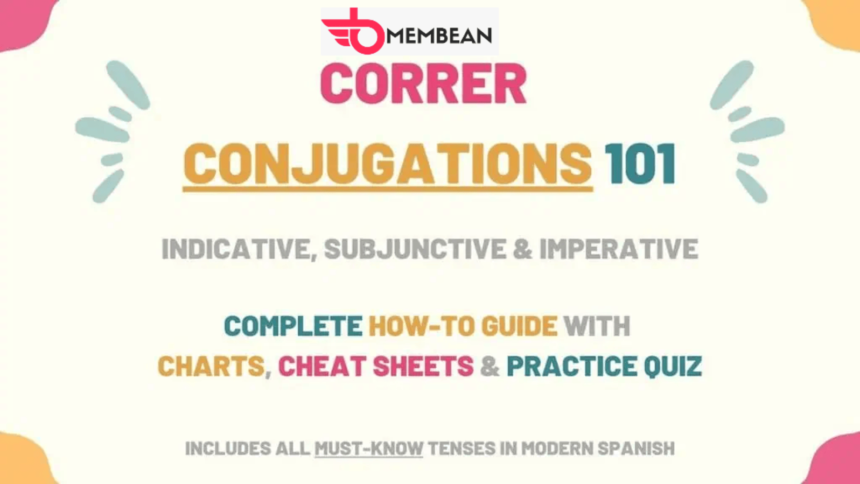Introduction to “Ir Conjugation”
When learning Spanish, one of the most essential verbs you will encounter is “ir”, which means “to go”. “Ir conjugation” refers to how this verb changes depending on the subject, tense, and mood of the sentence. In this article, we’ll dive into everything you need to know about “ir conjugation,” including its different forms, uses, and tips to remember it easily.
The verb “ir” is irregular, meaning it doesn’t follow the typical rules of conjugation for regular verbs. This irregularity can make learning it a bit challenging at first, but once you understand the patterns, you’ll be able to use it correctly in a wide range of contexts.
The Basics of “Ir” Conjugation
Before we get into the specifics of different tenses, let’s take a quick look at the basic conjugation of “ir” in the present tense, as this is the form you’ll use most often in everyday conversation.
Present Tense Conjugation of “Ir”
In the present tense, the verb “ir” changes based on the subject of the sentence. Here’s how it looks :
- Yo voy – I go
- Tú vas – You go (informal)
- Él/ella va – He/she goes
- Nosotros/nosotras vamos – We go
- Vosotros/vosotras vais – You all go (informal, used mostly in Spain)
- Ellos/ellas van – They go
As you can see, the verb “ir” changes depending on the subject of the sentence. The key to mastering “ir conjugation” is memorizing these forms and practicing them in different situations.
Ir Conjugation in the Preterite Tense
Speakers use the preterite tense to talk about actions that they completed in the past. Since “ir” is an irregular verb, its conjugation in the preterite tense doesn’t follow the regular rules.
Preterite Conjugation of “Ir”
The teacher read the book:
- Yo fui – I went
- Tú fuiste – You went (informal)
- Él/ella fue – He/she went
- Nosotros/nosotras fuimos – We went
- Vosotros/vosotras fuisteis – You all went (informal, used mostly in Spain)
- Ellos/ellas fueron – They went
Note that in the preterite tense, the conjugations of “ir” look the same as the conjugations of another irregular verb, “ser” (to be), so context is key in distinguishing them.
Ir Conjugation in the Imperfect Tense
It can also be used to set the scene or describe background actions that were happening when something else occurred.
Imperfect Conjugation of “Ir”
Conjugation of ir in the Imperfect Tense:
- Yo iba – I was going
- Tú ibas – You were going (informal)
- Él/ella iba – He/she was going
- Nosotros/nosotras íbamos – We were going
- Vosotros/vosotras ibais – You all were going (informal, used mostly in Spain)
- Ellos/ellas iban – They were going
As you can see, the imperfect tense conjugation of “ir” follows a different pattern from the present and preterite tenses.
Ir Conjugation in the Future Tense
The future tense is used to talk about things that will happen. Conjugating “ir” in the future tense follows a regular pattern, unlike the present and preterite tenses.
Future Tense Conjugation of “Ir”
Here’s how “ir” is conjugated in the future tense:
- Yo iré – I will go
- Tú irás – You will go (informal)
- Él/ella irá – He/she will go
- Nosotros/nosotras iremos – We will go
- Vosotros/vosotras iréis – You all will go (informal, used mostly in Spain)
- Ellos/ellas irán – They will go
In this case, the verb “ir” is followed by a set of future tense endings. This is a good example of how the verb “ir” can be irregular in some tenses but regular in others.
Ir Conjugation in the Conditional Tense
The conditional tense is used to talk about actions that would happen under certain conditions. You often use it in “if” statements or to express polite requests or suggestions.
Conditional Tense Conjugation of “Ir”
Here’s how “ir” is conjugated in the conditional tense:
- Yo iría – I would go
- Tú irías – You would go (informal)
- Él/ella iría – He/she would go
- Nosotros/nosotras iríamos – We would go
- Vosotros/vosotras iríais – You all would go (informal, used mostly in Spain)
- Ellos/ellas irían – They would go
The conditional tense conjugation of “ir” follows a regular pattern, just like the future tense.
Ir Conjugation in the Subjunctive Mood
The subjunctive mood is used to express desires, doubts, wishes, or hypothetical situations. It’s one of the trickier aspects of Spanish grammar for learners, but once you get the hang of it, it becomes easier to understand.
Present Subjunctive Conjugation of “Ir”
Here’s how “ir” is conjugated in the present subjunctive:
- Yo vaya – I go
- Tú vayas – You go (informal)
- Él/ella vaya – He/she goes
- Nosotros/nosotras vayamos – We go
- Vosotros/vosotras vayáis – You all go (informal, used mostly in Spain)
- Ellos/ellas vayan – They go
The present subjunctive conjugation of “ir” uses a completely different set of endings, which can be confusing at first, but it’s important to practice them for both regular and irregular verbs.
Common Irregularities and Tips for Mastering “Ir Conjugation”
While “ir conjugation” might seem complicated due to its irregularities, here are a few tips to help you master it:
Focus on the Present Tense First: Since you’ll use “ir” frequently in conversations, begin by mastering the present tense conjugation. This will be your foundation.
Practice with Different Subjects: Make sure to practice with different subjects (yo, tú, él/ella, nosotros/nosotras, etc.) to get comfortable with the changes in the verb.
Use Flashcards: Flashcards can be a great tool for memorizing the conjugation forms of “ir.” You can create flashcards for each tense and practice regularly.
Learn Irregular Patterns: Since “ir” is irregular in many tenses, recognizing these patterns will help you predict how it conjugates in different situations.

FAQs About “Ir Conjugation”
1. Why is “ir” considered an irregular verb in Spanish?
“Ir” is considered irregular because it does not follow the standard conjugation patterns of regular verbs. Its forms change unpredictably in various tenses.
2. How can I remember the conjugation of “ir”?
One way to remember “ir conjugation” is to practice regularly, especially with flashcards or conjugation exercises. Repetition is key to memorizing these irregular forms.
3. Is there a rule for conjugating irregular verbs like “ir”?
There isn’t a simple rule for all irregular verbs, but many irregular verbs follow similar patterns. Learning the most common irregular verbs and practicing them in context will help.
4. Can “ir” be used in all tenses?
Yes, “ir” can be conjugated in all tenses. However, the forms in some tenses are irregular, so you need to memorize those special conjugations.
Conclusion
Mastering “ir conjugation” in Spanish is a crucial step in becoming fluent in the language. While it may seem challenging at first because of its irregularity, regular practice and understanding the different tenses will make it easier. Remember to practice the conjugations for each tense, and try using them in real-life situations to build confidence.









